The Impact of YouTube on U.S. Politics
The Impact of YouTube
on U.S. Politics
LaChrystal D. Ricke
LEXINGTON BOOKS
Lanham Boulder New York London
Published by Lexington Books
An imprint of The Rowman & Littlefield Publishing Group, Inc.
4501 Forbes Boulevard, Suite 200, Lanham, Maryland 20706
www.rowman.com
16 Carlisle Street, London W1D 3BT, United Kingdom
Copyright 2014 by Lexington Books
All rights reserved. No part of this book may be reproduced in any form or by any electronic or mechanical means, including information storage and retrieval systems, without written permission from the publisher, except by a reviewer who may quote passages in a review.
British Library Cataloguing in Publication Information Available
Library of Congress Cataloging-in-Publication Data
Ricke, LaChrystal D.
The impact of Youtube on U.S. politics / LaChrystal D. Ricke.
pages cm
Includes bibliographical references and index.
ISBN 978-0-7391-8349-6 (cloth : alk. paper) -- ISBN 978-0-7391-8350-2 (electronic)
1. Communication in politics--Technological innovations--United States. 2. Political campaigns--Technological innovations--United States. 3. YouTube (Electronic resource)--Political aspects--United States. 4. Social media--Political aspects--United States. 5. Internet--Political aspects--United States. I. Title. II. Title: Impact of Youtube on United States politics.
JA85.2.U6R54 2014
320.973--dc23
2014020471
 TM The paper used in this publication meets the minimum requirements of American National Standard for Information Sciences Permanence of Paper for Printed Library Materials, ANSI/NISO Z39.48-1992.
TM The paper used in this publication meets the minimum requirements of American National Standard for Information Sciences Permanence of Paper for Printed Library Materials, ANSI/NISO Z39.48-1992.
Printed in the United States of America
To Michael, my perpetual champion.
And Joann, my interminable mentor.
Chapter 1
The Participatory Web and YouTube
The potential communicative impact of the Internet has been a topic of discussion since the early 1990s. Nobody was really sure how or when the Internet would begin to make its impact, but many in the telecommunications industry knew that it would. While the future direction of Internet-based technologies was uncertain, Dan Schulman, then an executive at AT&T and the future CEO of Virgin Mobile USA, remarked that the changing communication structure of the Net was creating a tsunami of change, unseen and unfelt now, but sure to wipe away the world as we know it when it arrives.
Although primarily situated as a commercial enterprise, YouTube has become a pervasive and vital political communication tool. Its structure, including ease of use, person-to-person connectivity, and asynchronous interactivity, have ushered in a wave of political communication, campaigning, and engagement that connects people to politics, and politically to one another, in ways that far outreach previous communication technologies. It is arguable that perhaps no other communication medium in the history of politics has expanded so substantially and had such an impact on the political communication spectrum in such a short period of time. In just a few election cycles, the proliferation and expanse of YouTube has had a measurable impact on politics in the United States. Now that the platform has been utilized as a political tool across multiple election cycles, there is enough information to begin discussing its broad political impact with an eye toward the platforms political impact in future elections.
The purpose of this volume is to discuss the broad and evolving political impact of YouTube. This text is positioned to provide a historical, descriptive, and conceptual discussion of the important ways in which YouTube has been implemented into the areas of political campaigning, communication, and engagement. To provide a synthesized illustration of the ways in which YouTube has become a requisite political tool, the text provides a discussion of political YouTube videos and strategies spanning across the 2006, 2008, 2010, and 2012 election cycles. The text discusses the importance of YouTube as a vehicle for political communication and provides examples of successful integration of YouTube into political communication strategies, as well as some failures on the part politicians and campaigns to adequately engage the populous via the medium. Finally, the volume will aim to address the overarching question of where the relationship between politics and YouTube may lead in the future.
Politics and Technology
In order to understand the contemporary impact of YouTube, it is important to first discuss the evolution of political technologies and the ways in which the political Internet has provided a venue through which political and citizen voices have been allowed to advance. Developing communication technologies have always provided interesting alterations to the political spectrum and have often fundamentally transformed the ways in which campaigns and politicians communicate with constituents. The advancement of mass media technologies have consistently necessitated the melding of campaign communication platforms and strategies. With the emergence of each new communication technology, former, dominant communication methods tend to become less salient with regard to reaching certain portions of the constituency. Now, this is not to say that any one new communication technology will render previous forms of communication ineffectual, but to assert that as new communication platforms evolve, they may, over time, emerge as dominant methods of message dissemination. For politicians to remain viable and effective in emerging media environments, they have always had to implement innovative methods of leveraging communication technologies to consistently reach and engage as many potential voters as possible. The most successful political campaigns understand this and work to create comprehensive campaign platforms that embrace new communication technologies and pair them appropriately with the tried-and-true methods of campaigns past.
YouTube provides an interesting exemplar as to how online communication technologies have been and are being used to enhance the reach and salience of established traditional mass media. In the 1930s, radio surpassed precinct leafleting as the primary method of campaign communication. However, contemporary candidates still spend a great deal of time and money dispersing large armies of staff and volunteers to amplify in-person voter turnout initiatives and have used YouTube as a means of increasing volunteer participation in such on-the-ground activities. In the 1960s, television supplanted radio as the dominant platform for the distribution of campaign messages and became the media on which a majority of campaign expenditures were allocated. Yet, candidates in nearly every contemporary federal election still use radio to reach particular voter demographics. During the 2008, 2010, and 2012 elections traditional radio advertisements from many candidates were also distributed via YouTube. Since radio ads are often geographically bound, redistributing the ads through YouTube amplifies the population base that may hear it and greatly extends the reach of traditional media strategies. For example, one radio spot for presidential candidate Ron Paul in 2008 was listened to over 58,000 times on YouTube.
In the late 1990s, Internet technologies began to play a significant role in political campaign communication. As the Internet, and its users, began to evolve technologically, Internet use became an integrative behavior for many individuals. Much like reading the newspaper, listening to the radio, or watching television had historically provided a staple avenue through which to access political news and information, the Internet quickly became a vehicle individuals turned to for politics. By the 2008 election, the Internet had become a significant source for political news with 24 percent of Americans noting they regularly found campaign information online, an increase of 11 percent from the 2004 election, and 42 percent of people ages 1829 reported regularly using the Internet to access political information. As Internet-based technologies evolved, they began playing an increasingly dominant role in message dissemination and consumed larger portions of campaign media expenditures. While contemporary campaigns are still largely dependent on both radio and television, quite often there is substantial overlap between the types of political messages that generate traction across radio, television, and Internet platforms.
Next page
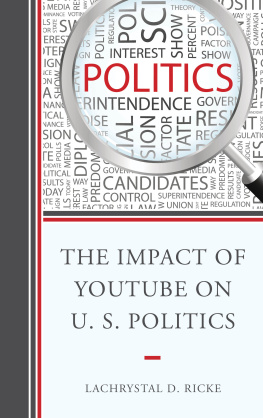
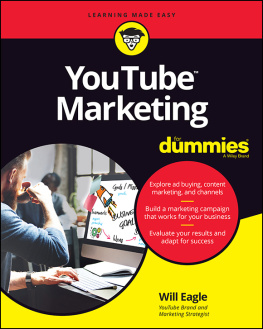
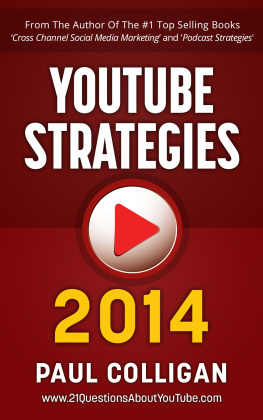
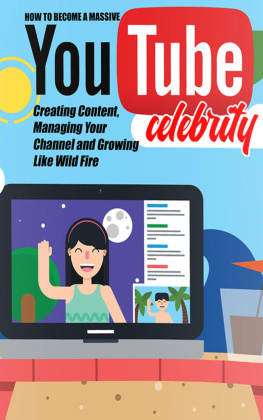

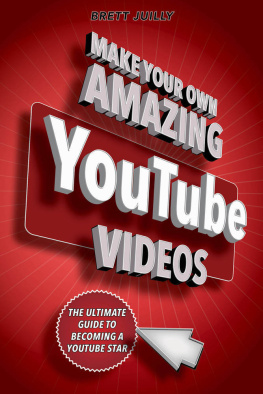
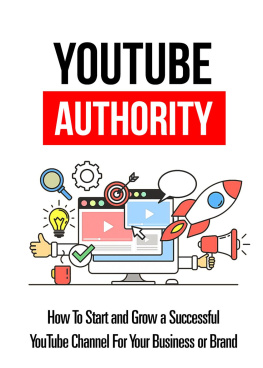
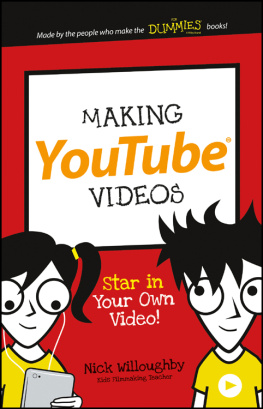

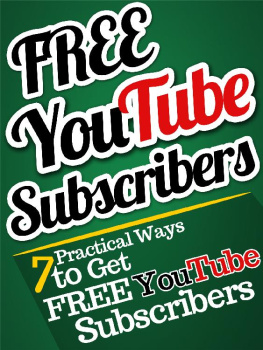

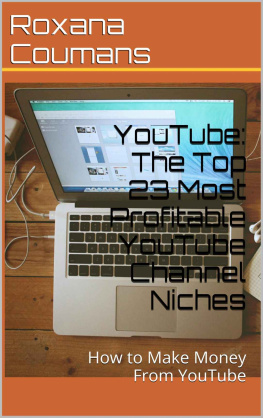
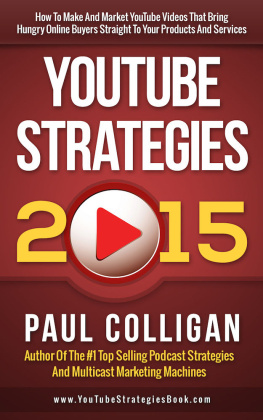
 TM The paper used in this publication meets the minimum requirements of American National Standard for Information Sciences Permanence of Paper for Printed Library Materials, ANSI/NISO Z39.48-1992.
TM The paper used in this publication meets the minimum requirements of American National Standard for Information Sciences Permanence of Paper for Printed Library Materials, ANSI/NISO Z39.48-1992.